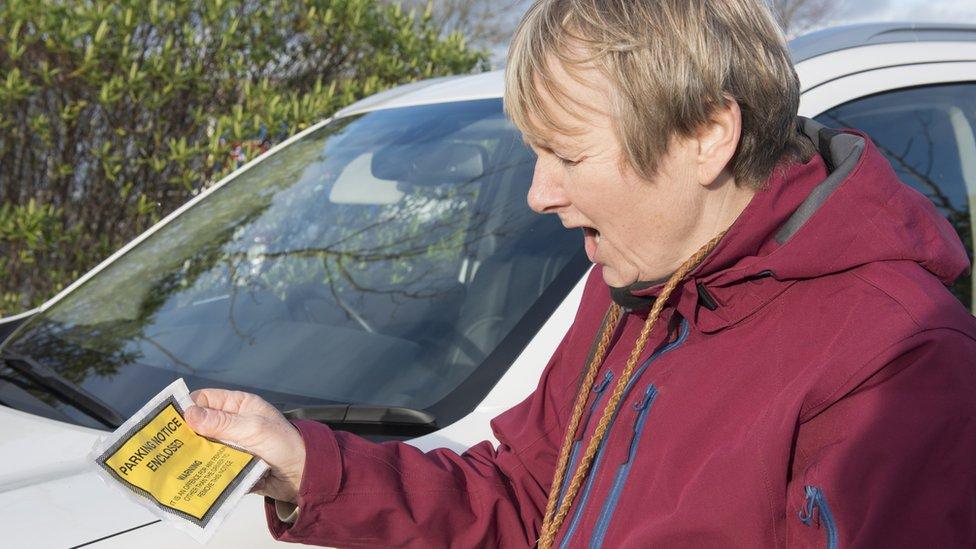Double yellow line parking 'loophole' soon to close
- Published

In 21 district and borough council areas the local authority is not allowed to issue penalty notices
A loophole in the way parking infringements are handled means some drivers in England can park on yellow lines without fear of getting a ticket.
In 21 district and borough council areas, external the local authority is not allowed to issue penalty notices.
The responsibility instead lies with the police - and many forces give a low priority to parking problems.
However, the loophole is closing as parking enforcement across the country transfers from police to councils.
Under the 2004 Traffic Management Act, councils were given powers and responsibilities designed to make traffic move more freely - including civil enforcement rights to penalise drivers who park illegally.
These civil enforcement rights need to be granted to the individual councils by the Department of Transport, following a formal application and consultation period, external, and apply to on-street parking only, not compliance with resident permits or car park rules.
Money from tickets
It takes a minimum of 29 weeks for the process to be completed, although it usually takes much longer as councils need to have a framework in place before the powers are conferred.
Money made from parking tickets issued by a council will go to that council. Funds from tickets issued by police go to the Treasury, making civil enforcement potentially lucrative for the council as well as releasing police to focus on crime.
One council where parking on yellow lines is still under the jurisdiction of the police is Telford and Wrekin - and like the other 20 areas, the process of bringing in civil enforcement is under way.
The West Mercia Police and Crime Commissioner, John Campion, said the change would "deliver better services to local communities and would free up considerable police resource. Civil enforcement would mean for the first time a whole team solely dedicated to that issue.
'Prevent problems'
"It will help prevent problems and make sure they are resolved quicker where they do occur.
"Civil enforcement would also enable police officers to get on with investigating crimes as well as focusing on all the other vital work they do to keep us safe".
Civil enforcement was introduced in 2004 and since then 93% of councils have opted to take up the powers.